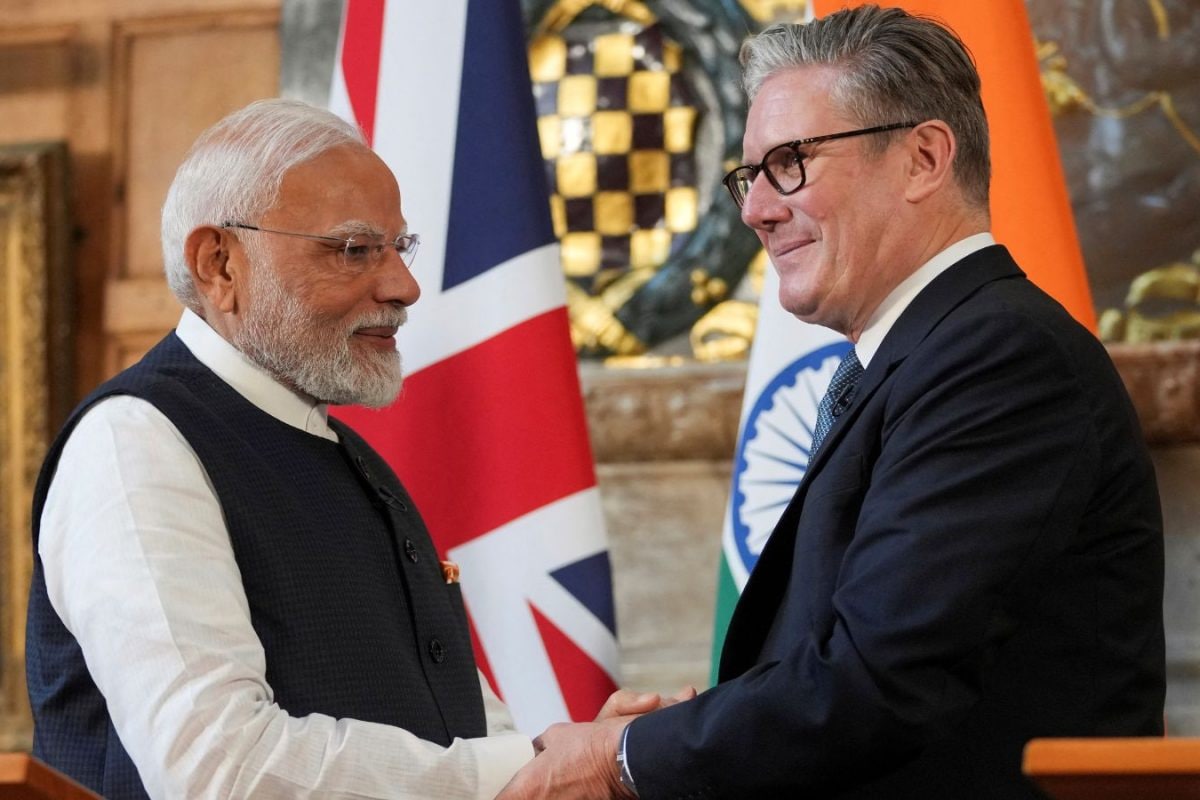The India-UK Free Trade Agreement (FTA), signed on Thursday, July 24, 2025, marks a significant milestone in the economic partnership between the two nations. Both Prime Minister Narendra Modi and UK Prime Minister Keir Starmer have hailed the deal as a historic moment that will usher in a new era of growth and prosperity for their respective countries.
Key Highlights of the FTA
The FTA is projected to boost annual bilateral trade by $34 billion. India will cut tariffs on 90% of UK products, while the UK will eliminate duties on 99% of Indian exports. This agreement is expected to benefit various sectors, including leather, textiles, electronics, and software, and attract new investments. The UK government estimates that the deal will increase UK exports to India by almost 60% in the long term.
Quotes from the Leaders
- Prime Minister Narendra Modi: Described the FTA as a "historic day" in India-UK relations. He emphasized that the agreement will benefit youth, farmers, fishermen, and the MSME sector. Modi also stated that the FTA will pave a strong path for future generations and add a new chapter in business and trade. "This visit will go a long way in advancing the economic partnership between our nations," Modi said on X. "The focus will be on furthering prosperity, growth and boosting job creation for our people. A strong India-UK friendship is essential for global progress".
- Prime Minister Keir Starmer: Called the trade deal a "major win for Britain" and the "most significant" trade agreement secured by a British government since Brexit. Starmer stated that the FTA will create thousands of British jobs across the UK, unlock new opportunities for businesses, and drive growth in every corner of the country. He also highlighted that the deal would help bring down the cost of everyday goods for British consumers. "It is a deal that will bring huge benefits to both of our countries, boosting wages, raising living standards and putting more money in the pockets of working people. It is good for jobs, it is good for business, cutting tariffs and making trade cheaper, quicker and easier," Starmer said.
Impact on Key Sectors
The FTA is expected to have a wide-ranging impact on various sectors in both countries.
- For India: The agreement will provide duty-free access to 99% of Indian exports, benefiting labor-intensive sectors such as textiles, leather, footwear, gems and jewellery, and engineering goods. The FTA is also expected to boost India's agricultural exports and provide Indian consumers with access to high-quality goods at competitive prices. Specifically, the Indian leather sector is projected to gain an additional market share of 5% in the UK within the next two years.
- For the UK: The FTA will reduce tariffs on UK goods entering India, making them more affordable for Indian consumers. British whisky producers will benefit from tariffs being slashed in half immediately and further reduced over the next decade. The agreement also opens up opportunities for British firms to bid for federal-level contracts in India and ensures that UK financial services companies are treated on an equal footing with domestic suppliers.
Looking Ahead
The India-UK FTA is not just a trade agreement; it is a strategic partnership that reflects the shared values and aspirations of both nations. The "UK-India Vision 2035" will also be agreed upon to mark a step-change in bilateral ties for the next decade. As PM Modi stated, a strong India-UK friendship is essential for global progress. With the FTA in place, both countries are poised to deepen their collaboration in various fields, including trade, investment, technology, and defence, and create a brighter future for their citizens.

